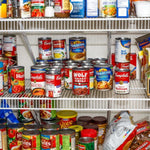Ben Burckhalter
Urban Survival Tips: How to Stay Prepared in Emergency Situations in the City
Living in a city comes with its own set of challenges, especially when it comes to survival in emergency situations. From power outages and severe weather to civil unrest and pandemics, urban environments can quickly become complex and challenging survival scenarios. Being prepared for such situations can make a significant difference in your safety and well-being. This comprehensive guide will provide you with essential urban survival tips to help you stay prepared for emergency situations in the city.
Understanding Urban Survival
Urban survival is about more than just having a stockpile of food and water. It's about understanding the unique challenges that come with living in a densely populated area and being prepared to handle them. This includes understanding the infrastructure of your city, knowing alternative routes, being aware of potential threats, and having a plan in place for various emergency scenarios.
In an urban environment, resources like food and water might be plentiful, but they're also in high demand. When an emergency strikes, stores can quickly run out of supplies. Additionally, the high population density can lead to increased competition for resources. Understanding these dynamics can help you plan your emergency supplies more effectively.
Infrastructure is another important aspect of urban survival. Knowing the location of important facilities like hospitals, police stations, and shelters can be crucial in an emergency. Understanding your city's transportation system can also be a lifesaver. If roads are blocked or public transportation is down, knowing alternative routes or methods of transportation can help you get to safety.
Potential threats in an urban environment can range from crime to natural disasters. Being aware of the risks in your specific area can help you prepare for them. For example, if you live in an area prone to earthquakes, you might want to prepare an earthquake kit and plan.
Having a plan in place for various emergency scenarios is another key aspect of urban survival. This includes having a communication plan with your family, knowing where to go in case of evacuation, and knowing what to do in case of specific emergencies like fires or floods.
Essential Urban Survival Skills
There are several skills that are particularly useful in urban survival scenarios. These include:
First Aid:
Knowing basic first aid is crucial in any survival situation. In an urban environment, you might be dealing with injuries from broken glass, debris, or car accidents. A first aid course can equip you with the skills to handle these situations until professional medical help is available.
Navigation:
In a city, knowing how to navigate can help you avoid danger zones and find resources. This includes understanding public transportation systems and knowing alternative routes. In an emergency, familiar landmarks might be unrecognizable, and usual routes might be blocked. Being able to navigate using a map and compass can be a valuable skill.
Communication:
In an emergency, communication networks may be overloaded or down. Knowing alternative ways to communicate, such as using social media or messaging apps, can be invaluable. It's also important to have a plan for communicating with family members in case normal communication channels are unavailable.
Self-Defense:
In some emergency situations, crime rates can increase. Knowing basic self-defense can help you protect yourself and your family.
Preparing Your Urban Survival Kit
An urban survival kit should include essentials like food, water, and first aid supplies, but it should also include items specifically useful in an urban environment. These might include:
Multi-tool:
A good multi-tool can help you with everything from opening canned food to making minor repairs. Look for one that includes tools like a knife, can opener, screwdrivers, and pliers.
Portable Charger:
In an urban survival situation, your phone can be your lifeline. It can provide you with important updates, allow you to communicate with others, and even help you navigate. A portable charger can keep it powered even if the electricity is out.
Cash and Important Documents:
In an emergency, ATMs and credit card machines may not be working. Having cash on hand can be crucial. It's also important to have copies of important documents, like your ID, insurance information, and any important medical information. Keep these in a waterproof and fireproof container.
Emergency Blanket:
An emergency blanket, also known as a space blanket, can help keep you warm in case of power outages or if you need to shelter outside.
Water Purification Supplies:
While bottled water should be part of your emergency supplies, it's also a good idea to have a way to purify water. This could be purification tablets, a life straw, or a portable water filter.
Staying Informed
In an urban survival situation, information is key. Knowing what's happening can help you make informed decisions about where to go and what to do. Stay informed by:
Monitoring Local News:
Local news can provide important updates about what's happening in your area. This could be through a battery-powered radio, your phone, or even social media.
Using Emergency Alert Apps:
There are several apps that can provide real-time updates about emergencies in your area. These can alert you to severe weather, civil unrest, or other emergencies.
Connecting with Your Community:
Your neighbors can be a valuable source of information and assistance. Consider joining a neighborhood watch or community emergency response team. These groups can provide local updates, assistance, and resources in an emergency.
Urban Survival Tips for Specific Scenarios
Different emergencies require different responses. Here are some tips for handling specific urban survival scenarios:
Power Outages:
Have flashlights and spare batteries on hand. Avoid opening your refrigerator or freezer to keep food cold as long as possible. If the power outage is during the winter, layer up to stay warm. If it's during the summer, stay hydrated and try to stay cool.
Severe Weather:
Know where the nearest shelters are. If you're staying home, stay away from windows and don't use electrical appliances. Secure any outdoor items that could become projectiles in strong winds.
Civil Unrest:
Stay inside if possible. If you must go out, avoid large crowds and areas where unrest is occurring. Keep your doors and windows locked and stay informed about what's happening.
Pandemics:
Follow guidelines from reputable health organizations like the CDC or WHO. This might include wearing a mask, social distancing, and washing your hands regularly. Stay home if possible, especially if you're sick.
Conclusion
Urban survival is about being prepared, staying informed, and knowing how to respond in different situations. With these tips, you can navigate the challenges of urban survival and stay safe in emergency situations in the city. Remember, the key to survival is not just having the right gear or skills, but also having the right mindset. Stay calm, stay informed, and stay prepared.
Share on:










